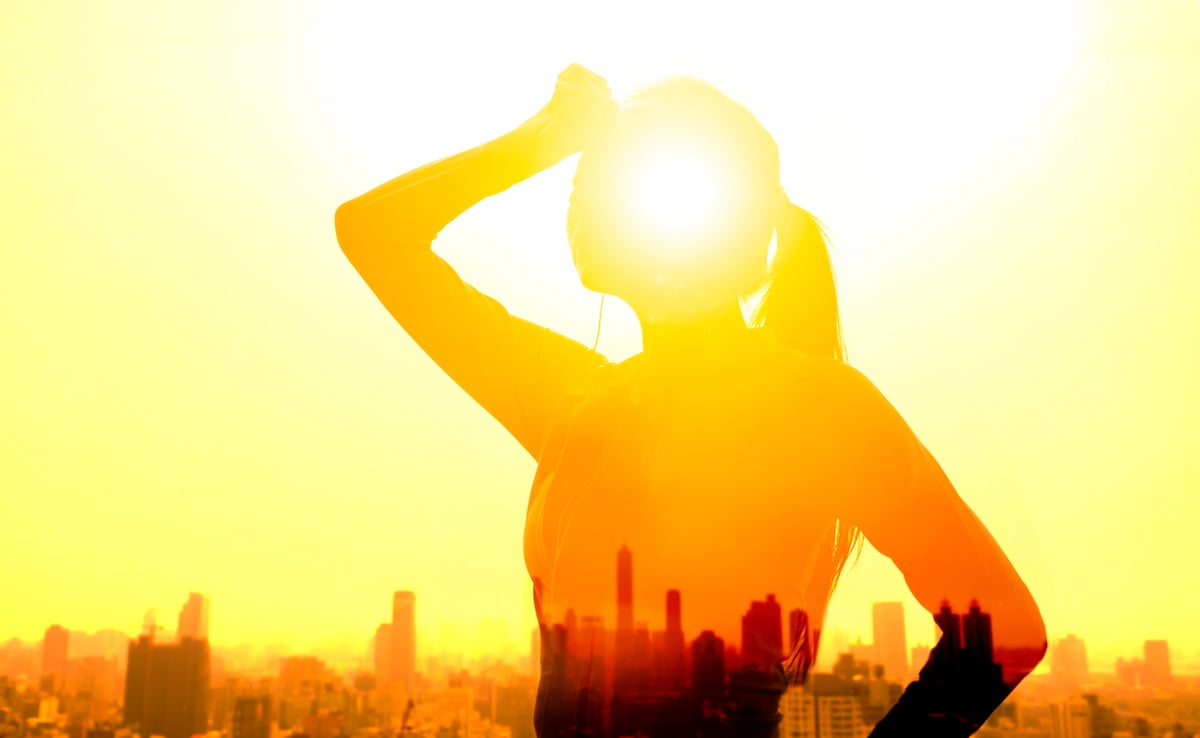- Home/
- Over 70% Indians Impacted By Severe Heat Waves Due To Climate Change: Report
Over 70% Indians Impacted By Severe Heat Waves Due To Climate Change: Report

New Delhi, Nov 18 (IANS) With a rise in global temperatures due to climate change, more than 70 per cent of Indians reported personally experiencing severe heat waves, as well as droughts and water shortages, according to a report on Tuesday.
The report by Yale Program on Climate Change Communication, based on survey data collected between 2022 and 2025 from over 19,000 respondents, created Climate Opinion Maps that revealed how people's experiences with extreme weather and their beliefs about climate change's role in these events vary across India's states and districts.
Nationally, a majority of Indians reported personally experiencing severe heat waves (71 per cent), agricultural pests and diseases (59 per cent), electricity power outages (59 per cent), water pollution (53 per cent), droughts and water shortages (52 per cent), and severe air pollution (51 per cent) in the past 12 months.
“As India rapidly develops while facing intensifying extreme weather, understanding how people across states and districts perceive and experience climate change is essential. These maps can help local and state leaders design climate action plans that reflect people's lived realities and build durable public support for solutions,” said Dr. Jagadish Thaker, Senior Lecturer, University of Queensland, and one of the lead authors.
The report also showed geographic variation in experiences with extreme weather and related climate impacts.
In Uttar Pradesh, India's most populous state, 78 per cent of adults reported personally experiencing severe heat waves, among the highest in the country, along with Rajasthan (80 per cent), Haryana (80 per cent), and Odisha (80 per cent).
In comparison, just over half of adults in Kerala and Tamil Nadu reported the same (55 per cent and 52 per cent, respectively).
Similarly, while only 35 per cent of Indians nationwide report experiencing severe cyclones, that number rises to 64 per cent among people in Odisha, which was hit hard by Cyclone Dana in October 2024.
Odisha also stands out regarding droughts -- over two-thirds of people in Odisha report experiencing droughts and water shortages.
“These data about how people across India are experiencing the impacts of climate change can help decision makers better understand public risk perceptions and design climate adaptation, communication, and sustainable development policies that meet Indians where they are,” said lead researcher Dr. Jennifer Marlon, at the Yale Program on Climate Change Communication.
(Except for the headline, this story has not been edited by NDTV staff and is published from a syndicated feed.)
Latest Stories
- Reported by Rittick Mondal | Thursday February 26, 2026 , Kolkata
The Mamata Banerjee-led government plans to set up an 800-km long greeen corridor, which will work as a "bioshield" - a forested area that would act as a "Green Wall" - along the Jharkhand border to intercept pollutants entering Bengal.
- Agence France-Presse | Thursday February 26, 2026 , Paris
The United Nations announced the approval of the first carbon credits under a global market aimed at reducing emissions, a mechanism that has faced scrutiny over greenwashing concerns.
- Wednesday February 25, 2026 , New Delhi
Air pollution is a concern not just for Mumbai but for countries and cities around the world, Maharashtra Environment Minister Pankaja Munde told NDTV Wednesday, after the city woke this morning to a blanket of smog for an eighth straight day.
- Reported by Radhika Ramaswamy | Thursday February 26, 2026 , Mumbai
Mumbai woke up to yet another blanket of haze on Tuesday morning, with a grey veil hanging over the skyline from Bandra to South Mumbai.
- Written by Shreya Goswami | Wednesday February 25, 2026
A new National Stroke Registry analysis reveals nearly 14 % of stroke patients in India are under 45, a demographic once considered low risk.
................................ Advertisement ................................
Latest Videos
Opinion
Blog | Well Done, Delhi. You've Turned Lung Sacrifice Into A Badge Of HonourSaikat Kumar Bose
Monday November 10, 2025Till some years back, Delhiites would ask angry questions to those in power about the capitals annual tryst with toxic air. This has changed. Those in the driving seat dont see the need to answer now.
Opinion | Why Indians Have Just Given Up On Air Pollution CrisisTanushree Ganguly
Friday December 20, 2024While some may argue that people in Delhi are now more aware of air pollution than they were a decade back, my rebuttal would be that awareness does not mean that people are concerned.
Opinion | You Must Outrage Over Filthy Air More Than Once A YearJyoti Pande Lavakare
Tuesday December 10, 2024Delhi welcomed us with monsoon rains and mangos. We were home. Fast forward a couple of years, in the winter of 2012, I found myself in denial about something other parents, mostly expats, were calling toxic air.
Opinion | Delhi's Air Pollution Situation Is Like A Bad MarriageNishtha Gautam
Friday November 22, 2024On a good day, such as today, the AQI reading in Delhi is 407. We are jubilant at the sickly sunshine trickling through the slightly dissipated smog. At least its not 1600.
दिवाली... पराली... सियासी जुगाली!Ashwini kumar
Monday November 18, 2024दिल्ली-एनसीआर में प्रदूषण का समाधान तो आज तक मिला नहीं. हर साल चिंतित होकर हम-आप सांसों की तकलीफ के साथ-साथ दिल और ब्लड प्रेशर के मरीज भी क्यों बनें?


















